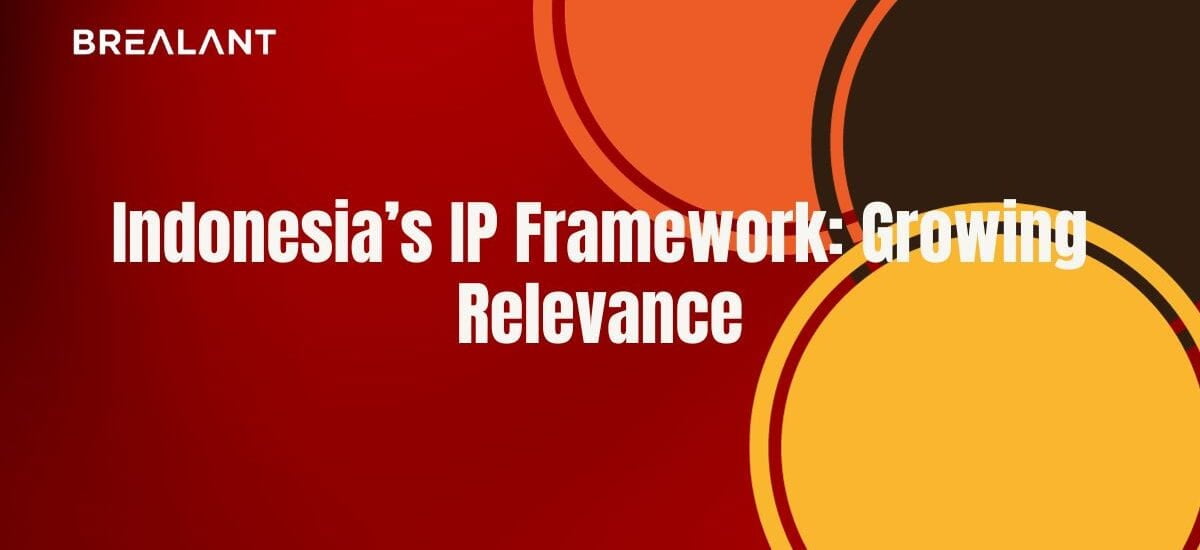
As Indonesia grows into an increasingly digitized society, an IP framework that supports innovation and growth is necessary. With a population of over 260 million people and growing, the country urgently needs IP policies that protect its intellectual property, allow for new businesses to be formed, and spur economic growth.
IP policy in Indonesia dates back to colonial times. However, in 2002, the country ratified the Paris Convention for the Protection of Industrial Property (PCT). Since then, legislative efforts have been to reform IP policy, including creating a National Industrial Property Authority (Binsarja Industri Peranan Nasional-BIPN) in 2007, updating the Patent Act in 2009, and amending the Copyright Law in 2013. Along with these legislative initiatives, several important executive decrees have been issued that guide issues such as trademarks and unfair competition. But much work remains to be done to implement operative IP law provisions across all industry sectors fully.
With a population of over 260 million people and growing rapidly into a digital society, Indonesia faces many challenges when protecting its intellectual property. A successful IP framework must support innovation by protecting new businesses from unfair competition and stimulate economic growth by establishing strong protections for trademarked and copyrighted materials. Currently, Indonesia has made steps towards implementing a successful IP framework by passing legislation such as updating the Patent Act in 2009 and amending the Copyright Law in 2013. Now is the time for implementation through continued implementation of applicable executive decrees.
What makes IP security so important in Indonesia?
Indonesia has the potential to generate significant revenues and create exciting new opportunities for businesses operating in the region. This report provides an overview of the country’s intellectual property landscape, highlighting key focus areas for businesses seeking to enter or expand their operations in Indonesia.
The Indonesian economy is rising and is projected to grow 6% annually through 2020. This growth is fuelled by strong domestic demand, growing investment and exports, and increasing foreign direct investment. The country also enjoys favorable demographics – a young and rapidly expanding population – and strong economic fundamentals. These factors put pressure on industry sectors not using IP to their full potential, such as food processing, which could see significant growth in the coming years.
The report discusses the current state of Indonesia’s Intellectual Property (IP) market, including information on patent applications and granted patents, trademark registrations and trademarks registered, copyright registrations and protection provided, and foreign investments in IP-enabled companies. In addition, it provides benchmarks for key industry sectors in Indonesia and analyses how IP can be leveraged to help drive innovation and upgrade capacity in these sectors.
What is the loophole?
Indonesia still has a problem with ensuring compliance with IP rights. The enforcement of intellectual property rights is still only moderate, notwithstanding suitable laws. There are two primary avenues for IP enforcement (civil and criminal enforcement); however, trademark, patent, and copyright legislation demand a rights-holder complaint before an investigation may be launched.
Since Indonesia became independent in 1945, it has undergone many transformations. It has gone from being under Dutch colonial rule to becoming an emerging Southeast Asian superpower. One facet of this transformation has been the development of IP law.
IP law is a multidisciplinary branch of law that governs the intellectual property rights of individuals and organizations. Its principal objective is to protect the creative works of authors, inventors, and artists from unauthorized use by third parties. IP frameworks are important for fostering innovation and encouraging creativity. They also contribute to economic growth and prosperity by creating jobs in the intellectual property sector.
Indonesia’s IP framework is growing in relevance both domestically and internationally. This is due in part to Indonesia’s ongoing efforts to enhance its global trade position and attract foreign investment and become a regional hub for innovation. In addition, Indonesia’s growing economy has created more opportunities for businesses to invest in IP rights protection mechanisms.
Conclusion
Indonesia’s IP framework is improving rapidly as it continues to comply with TRIPS Agreement requirements. The growing number of IP laws and regulations in Indonesia will help protect businesses from intellectual property theft and inventors’ rights. Indonesia has signed the Trade-Related Aspects of Intellectual Property Rights (TRIPS) agreement, meaning its IP framework must comply with the TRIPS Agreement requirements.
Does the IP security of your innovation or brand bother you? Then, customized expert advice will surely do wonders. Brealant is your solution provider for all your queries related to the IP security domain and related aspects. Brealant has been catering IP security solutions to various clients for over a decade. Clear your queries with just one click; visit the website to learn more.

